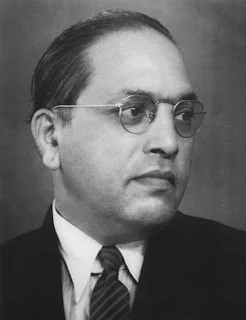In the memory of Dr B.R.Ambedkar
1. Ambedkar on Trade Unions and Workers’ Rights:
Dr. Ambedkar was deeply concerned with the economic conditions of the working class and their exploitation by capitalists. He believed in organizing workers into unions to demand fair wages, better working conditions, and social justice. For him, the strength of labour lay in unity and collective action.
• “The progress of the working class must rest on the cornerstone of organization.”
o Ambedkar emphasized that only by organizing could workers resist exploitation and secure their rights.
• “We must shape the course of our future industrial economy on the principles of justice, social security, and equality.”
o He believed that the foundation of economic justice was essential to improving the conditions of workers.
• “Labour welfare must be the guiding principle of any progressive industrial policy.”
o This highlights his focus on improving the lives of the labour force through institutional reforms and government policies.
Ambedkar’s emphasis on trade unionism also stemmed from his broader belief in the power of organized struggle to overcome social and economic inequalities, particularly those faced by marginalized communities.
2. Ambedkar on Communal Harmony and National Unity:
Ambedkar’s vision of India was one where communal division—whether based on religion, caste, or region—should be eradicated. He consistently advocated for a society built on equality and fraternity, warning against the dangers of communalism that could tear the nation apart.
• “I want all people to be Indians first, Indians last, and nothing else but Indians.”
o This quote reflects his desire for a national identity that transcends religious or caste affiliations, promoting unity.
• “Caste is a division of labour, but it is also a division of labourers.”
o He believed that caste and communal divides weakened the country, and this division needed to be eradicated for the unity and strength of India.
• “In India, liberty, equality, and fraternity will not triumph unless the brotherhood of man becomes a fact and not merely a slogan.”
o Ambedkar advocated for fraternity among all citizens, recognizing that true harmony could only be achieved when all communities were treated as equals.
• “The greatest menace to our country is the domination of one religion over others.”
o He stressed that communalism and religious majoritarianism posed a serious threat to national integrity.
Ambedkar’s fight was twofold: to secure economic justice for workers and to ensure that social justice prevailed in a society divided by religion and caste. He believed that unless India embraced unity and discarded its hierarchical divisions, it could never become a true democracy.
For him, communal harmony wasn’t just about peaceful coexistence but building a society where no one was discriminated against on the basis of their identity. Similarly, for workers, his focus wasn’t just about better wages but about transforming society to be more just and equitable.
• “Freedom of mind is the real freedom.”
o Ambedkar’s advocacy for free thought was linked to his vision of a society where communal and social divisions did not control people’s beliefs and actions.
• “A people and their religion must be judged by social standards based on social ethics. No other standard would have any meaning if religion is held to be necessary for the welfare of the people.”
o He believed that religion should be a force for unity, not division, and should conform to the principles of social justice.
In summary, Ambedkar saw both labour rights and communal harmony as essential pillars for building a fair and equal India. His advocacy for organized labour aimed to secure economic justice, while his push for communal harmony sought to create a unified and cohesive nation.
• LET US REMEMBER HIS GREATEST SERVICE TO THE HUMANITY AND NATION.
• FLORAL TRIBUTE TO THIS GREATEST LEADER OF INDIA


Post a Comment